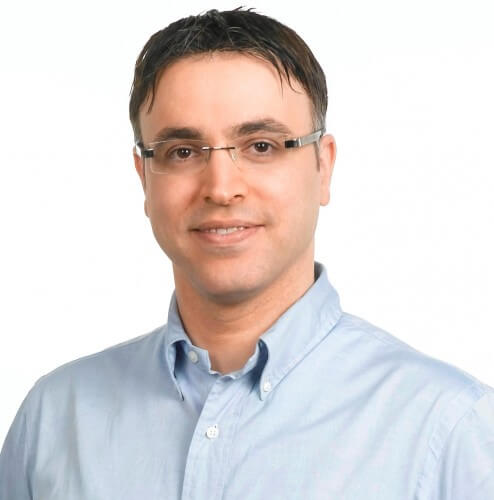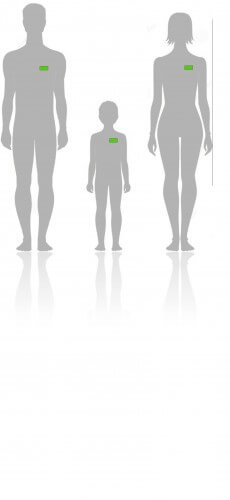"For areas suffering from chronic poverty, the Bill and Melinda Gates Foundation is an invaluable resource, which allows the wisdom of experts to be harnessed for the benefit of humanity and to solve problems in the fields of health and development. With the help of the Gates Foundation, we are developing a sticky, accurate, fast and inexpensive electronic patch for diagnosing tuberculosis, with the aim of increasing the survival rate among tuberculosis patients and stopping the spread of the disease. We hope that in the end these measures will help democratize and make healthcare services accessible around the world," said Professor Hayek.


The Technion today announced the receipt of a second grant as part of Grand Challenges Explorations - an initiative of the Bill and Melinda Gates Foundation, which allows people around the world to test bold ideas that may solve major problems in the field of medicine. The grant will help Professor Hussam Hayek from the Faculty of Chemical Engineering and the Russell Berry Institute for Nanotechnology at the Technion to continue his innovative biomedical research project, entitled "Electronic Adhesive Patch for Tuberculosis Diagnosis".
"For areas suffering from chronic poverty, the Bill and Melinda Gates Foundation is an invaluable resource, which allows the wisdom of experts to be harnessed for the benefit of humanity and to solve problems in the fields of health and development. With the help of the Gates Foundation, we are developing a sticky, accurate, fast and inexpensive electronic patch for diagnosing tuberculosis, with the aim of increasing the survival rate among tuberculosis patients and stopping the spread of the disease. We hope that in the end these measures will help democratize and make healthcare services accessible around the world," said Professor Hayek.
In 2012, Professor Hayek won a phase I grant from the foundation. A phase I grant is given to people who take an innovative approach to a burning and significant problem in the fields of medicine and development. Grand Challenges Explorations invests in bold ideas that are believed to have the power to solve problems that plague the daily lives of people in the Third World. Phase II is designed to advance ideas that have already come a long way toward implementation.
More than two billion people, according to estimates, are infected with tuberculosis, and about 10% of them will actively develop the disease during their lifetime. About 95% of TB patients live in developing countries, where the residents live on an income of one dollar a day. The ultimate goal of the current project led by Professor Hayek is the development of an autonomous diagnostic process based on an adhesive electronic patch. TB diagnosis, based on skin samples, takes 2 to 5 minutes. Its cost is low and its availability is higher than the existing approaches. The innovative sensing patch will be affixed to the subject's chest by a medical staff member or by the patient himself, and will also be suitable for children. The option to perform the test at home by the subject will allow patients to actively participate in the prevention and diagnosis of tuberculosis through constant monitoring of a population at risk - medical staff members, family members of tuberculosis patients, smokers, HIV carriers, etc. The findings of the rapid test will be indicated by a red light (indication of tuberculosis) or a green light (when the subject is healthy).
The development of a sensor patch for "quick, accurate and cheap diagnosis of active pulmonary tuberculosis compared to inactive or latent tuberculosis" will contribute to increasing the survival rate among tuberculosis patients and curbing the spread of the disease. The diagnostic patch is intended to be used by central laboratories, hospitals and clinic laboratories in low-resource areas or at the point of care, thereby expanding TB testing and saving at least 400,000 lives annually.
Grand Challenges Explorations is an initiative funded by the Bill and Melinda Gates Foundation. The initiative, founded in 2008, has already financed more than 1,100 projects in 60 countries. The grant program is open to anyone without field or organizational affiliation. The selection process is based on a short registration form, without the need for additional prior information. Initial grants of $100,000 are awarded twice a year. Successful projects get the opportunity to receive a follow-up grant in the amount of one million dollars or more.
